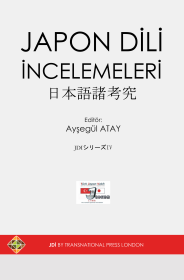翻訳論の視点からジェスチャー認識及び日本語 学習者に対するエンブレムジェスチャーの教育 に関する一考察 ー日本語とトルコ語の翻訳を中 心にー
A Study on Gesture Recognition and Education of Emblem Gesture for Japanese Learners from the Perspective of Translation Studies - Focusing on Japanese and Turkish Translations
Author(s): Ayşe Ağriş
Subject(s): Language studies, Education, Foreign languages learning, Studies of Literature, Translation Studies
Published by: Transnational Press London
Keywords: Translation Studies; Gesture; Gestures in Literary Language; Emblem Gesture; Japanese Language Education;
Summary/Abstract: In this paper, I investigated the Turkish translation of Bitmemiş Hikayeler Kütüphanesi [Library of Unfinished Stories, つづきの図書館] by Sachiko Kashiwaba. Gestures, in the target text, are determined and are examined how gestures are translated from Japanese to Turkish. Based on this, it is presented how emblem gesture should be taught to Turkish native students. Findings showed that translating gesture requires other strategies such as gesture-dialogue connection, synchronization, and cultural sense. For translating emblem gestures, it is necessary to translate the meaning and function of the source text, besides approaching them with a complex perspective in the translation process. In addition, in the translation process from the source language to the target language, not only linguistic and syntactic knowledge but also the languageculture relationship of the source language should be taught to Turkish students. For this purpose, it is considered that the use of gesture and body movement, visual materials, and the introduction of gestures of source culture have the importance. By this way, it is expected that a new point of view can help students in education of translation studies.
Book: Japon Dili İncelemeleri / 日本語諸考究
- Page Range: 131-140
- Page Count: 10
- Publication Year: 2018
- Language: Japanese
- Content File-PDF

